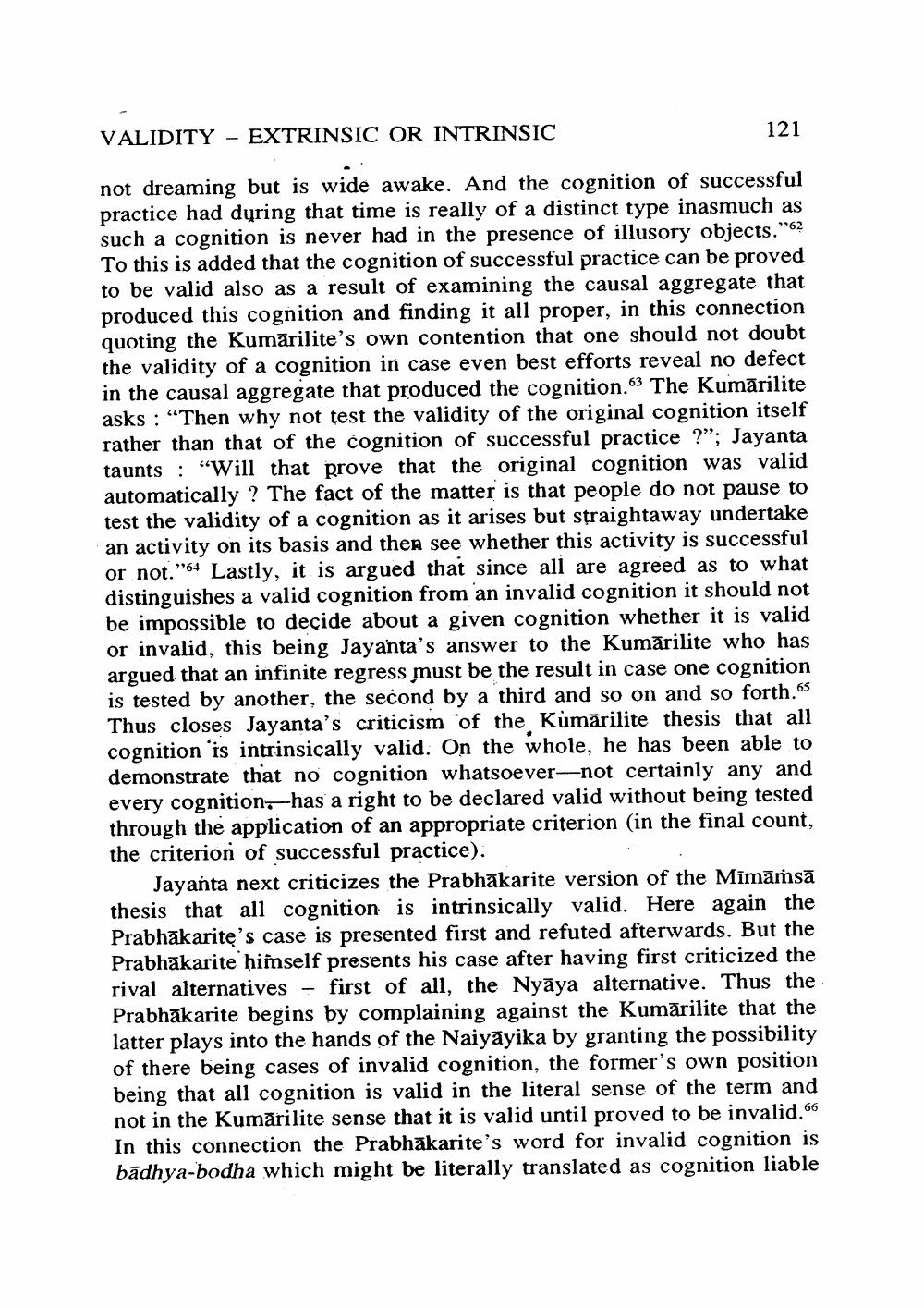________________
VALIDITY - EXTRINSIC OR INTRINSIC
121
not dreaming but is wide awake. And the cognition of successful practice had during that time is really of a distinct type inasmuch as such a cognition is never had in the presence of illusory objects."6? To this is added that the cognition of successful practice can be proved to be valid also as a result of examining the causal aggregate that produced this cognition and finding it all proper, in this connection quoting the Kumārilite's own contention that one should not doubt the validity of a cognition in case even best efforts reveal no defect in the causal aggregate that produced the cognition.63 The Kumārilite asks: "Then why not test the validity of the original cognition itself rather than that of the cognition of successful practice ?"; Jayanta taunts: “Will that prove that the original cognition was valid automatically ? The fact of the matter is that people do not pause to test the validity of a cognition as it arises but straightaway undertake an activity on its basis and then see whether this activity is successful or not.”64 Lastly, it is argued that since all are agreed as to what distinguishes a valid cognition from an invalid cognition it should not be impossible to decide about a given cognition whether it is valid or invalid, this being Jayanta's answer to the Kumārilite who has argued that an infinite regress must be the result in case one cognition is tested by another, the second by a third and so on and so forth.65 Thus closes Jayanta's criticism of the Kumārilite thesis that all cognition is intrinsically valid. On the whole, he has been able to demonstrate that no cognition whatsoever--not certainly any and every cognition has a right to be declared valid without being tested through the application of an appropriate criterion (in the final count, the criterion of successful practice).
Jayanta next criticizes the Prabhākarite version of the Mīmāmsā thesis that all cognition is intrinsically valid. Here again the Prabhākarite's case is presented first and refuted afterwards. But the Prabhakarite himself presents his case after having first criticized the rival alternatives - first of all, the Nyāya alternative. Thus the Prabhakarite begins by complaining against the Kumārilite that the latter plays into the hands of the Naiyāyika by granting the possibility of there being cases of invalid cognition, the former's own position being that all cognition is valid in the literal sense of the term and not in the Kumarilite sense that it is valid until proved to be invalid.66 In this connection the Prabhākarite's word for invalid cognition is bādhya-bodha which might be literally translated as cognition liable




